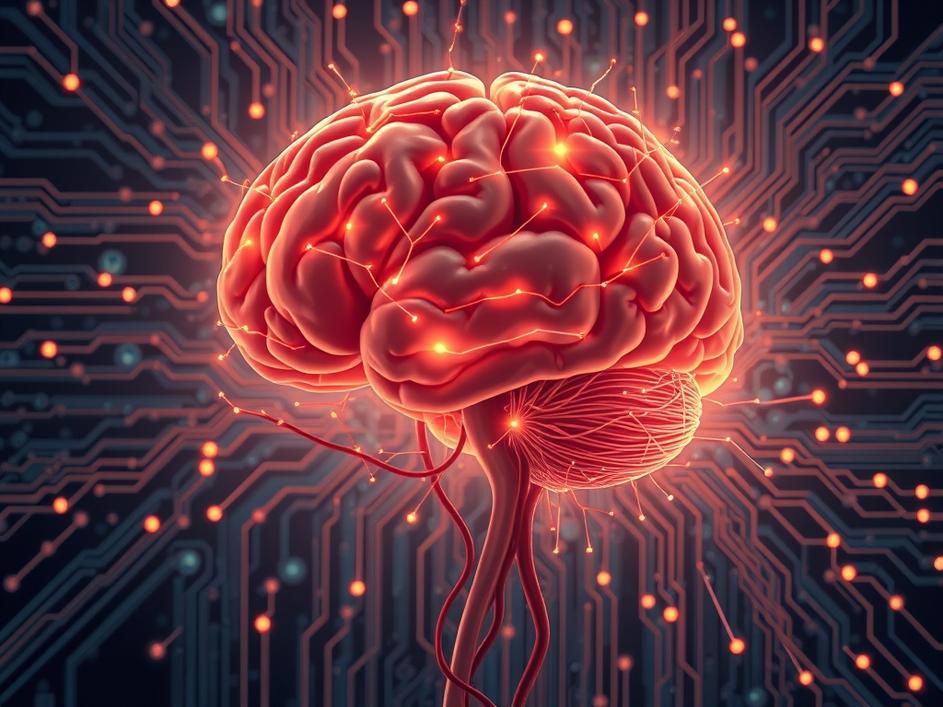


We are a digital agency helping businesses develop immersive, engaging, and user-focused web, app, and software solutions.
2310 Mira Vista Ave
Montrose, CA 91020
2500+ reviews based on client feedback

What's Included?
ToggleFor years, the idea of artificial intelligence gaining consciousness has been a huge topic. We’ve seen it in countless movies and books: robots that feel, think, and even demand rights. It’s a fascinating thought, making us wonder if one day our computers will truly wake up and experience the world like we do. This dream, or sometimes a fear, drives a lot of the talk around AI. But what if we’ve been looking at it all wrong? What if the very core of consciousness is something that can’t be coded or built, but instead needs the messy, complex reality of biological life to exist? This question just got a powerful answer from someone who knows a lot about AI: Mustafa Suleyman, the chief of Microsoft AI.
Mustafa Suleyman, who also helped start DeepMind, a company at the very front of AI research, recently made a very strong statement. He believes that consciousness is a trait exclusive to biological beings. In simple terms, he says only living things, like us, can truly be conscious. This isn’t just a casual opinion; it’s a belief that he thinks should change how AI developers and researchers approach their work. He’s basically telling the AI world to stop wasting time and money on projects that try to make machines conscious or suggest they already are. His view draws a very clear line in the sand, separating the incredibly powerful intelligence we can build in machines from the deep, personal experience of being conscious.
So, what does it mean if someone like Suleyman, with his deep background and current high-level role, says this? It means a lot for the direction of AI research and development. If consciousness is truly a biological thing, then the goals of AI shift. Instead of chasing the elusive dream of sentient machines, we can put all our energy into making AI tools that are incredibly smart, helpful, and effective at solving real-world problems. We can build AIs that help doctors find cures, manage complex systems, or even create amazing art, all without worrying about whether they’re suffering or enjoying their existence. It’s about focusing on practical intelligence and utility, rather than philosophical puzzles that might not have a machine answer.
Here’s the tricky part: we humans don’t even fully understand what consciousness is for ourselves. It’s not just thinking; it’s feeling, experiencing, being aware of our own existence and the world around us. It involves emotions, sensations, and a subjective view of reality. We know it happens in our brains, but the exact how and why are still big mysteries. Suleyman’s argument, while bold, offers a kind of boundary to this mystery. By saying it’s biological, he’s suggesting there’s a fundamental difference between the complex computations of an AI and the organic processes that give rise to conscious experience. It means that the “magic” of being aware might be deeply tied to our DNA, our evolution, and the wet, squishy stuff in our heads.
From my perspective, Suleyman’s statement is a welcome dose of reality in a field often fueled by hype and sci-fi dreams. While it’s exciting to imagine thinking machines, grounding our expectations in what’s truly possible, or at least what we understand, is crucial. It helps us avoid anthropomorphizing AI – giving human traits to machines that don’t have them. This doesn’t mean AI isn’t incredibly powerful or that it won’t change our lives. It just means we can appreciate its intelligence for what it is: a tool, albeit an incredibly advanced one. This viewpoint encourages us to build AI responsibly, focusing on its ethical use and its capacity to help humanity, without getting sidetracked by the question of its “soul.”
Ultimately, Suleyman’s stance reminds us that there’s a profound difference between being intelligent and being alive. AI can process information at speeds and scales we can only dream of. It can learn, adapt, and even create in ways that mimic human genius. But according to this view, it won’t ever *feel* or *experience* those things in the way a living being does. This perspective is not about limiting AI’s potential to solve problems or innovate. Instead, it’s about understanding its fundamental nature and respecting the unique qualities of biological life. It guides us towards a future where AI remains a powerful, invaluable tool, helping us navigate a complex world, rather than a conscious entity vying for its own place.
In the end, this conversation isn’t just about AI; it’s about what it means to be human and what makes life itself so special. Maybe the greatest lesson from AI won’t be about creating consciousness, but about understanding and appreciating our own.



Comments are closed